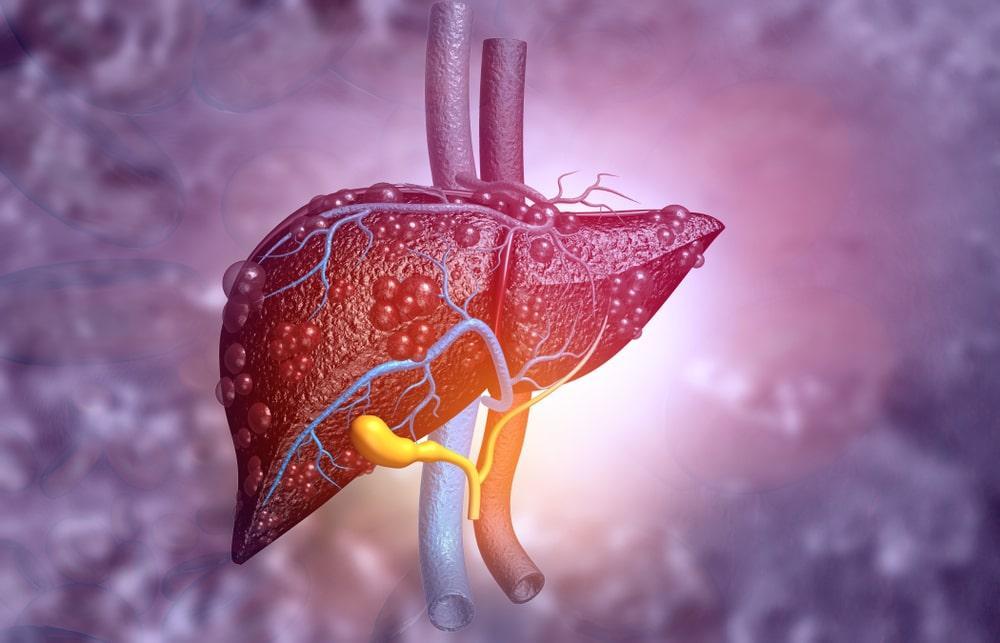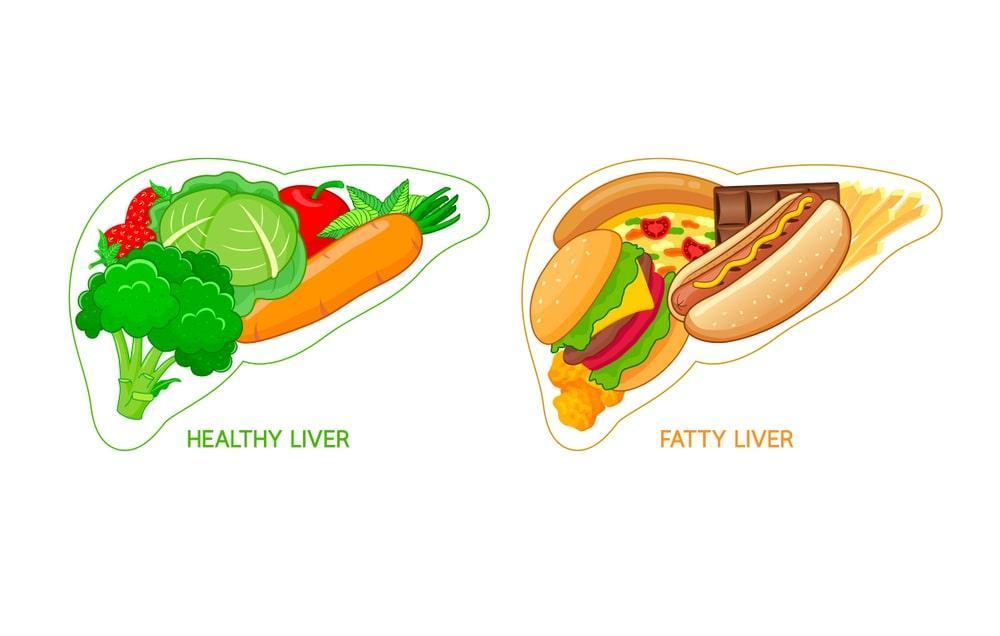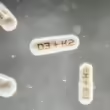What are the 4 Stages of Liver Disease?
Medically reviewed by our experts


When people think about the liver, one of the main questions that run through their mind is, “What are the 4 stages of liver disease?” Although the organ performs different bodily functions, including metabolizing drugs, filtering toxins from the blood, fighting infections, storing energy, and assisting in digestion, it is still prone to diseases. If it continuously works too hard, it may develop liver damage stages, leading to liver disease.
Liver disease marks an inflammation of the organ, which sometimes can recover naturally, with supplements, or through medical treatment. Although the liver can regenerate during the initial stages of liver disease, the damage may worsen and become irreversible after some time. When this occurs, a person usually experiences liver failure, whereby the organ cannot function normally.
A person suffering from liver failure must undertake immediate medical intervention. If doctors cannot save enough of the organ, the only alternative is a liver transplant. This process can be long and complex. Therefore, the best solution is to take preventative measures and seek immediate medical intervention in case of any signs of the disease or early-stage liver failure.
This article is an answer to the query, “What are the 4 stages of liver disease?” We’ll also explain the causes and preventive measures.
What Are the 4 Stages of Liver Disease? Lets Find Out
A liver undergoes various stages of damage before it fails completely, which occurs due to a lack of medical intervention. However, an individual may experience acute liver failure, whereby the organ fails suddenly without exhibiting any signs. So, what are the 4 stages of liver disease?
Stage One: Liver Inflammation
This is part of the body’s defense mechanism whereby the immune system detects and eliminates foreign and harmful stimuli to start the healing process. When it comes to liver disease, inflammation happens when the liver comes into contact with toxic agents like viral infections or chemicals. Liver inflammation can also occur when the toxins in the blood exceed the liver’s ability to manage them.
Liver inflammation can either be chronic or acute. If the condition is acute, when the threat terminates, and the organ restores itself after a few days or hours as healthy tissues redevelop. On the other hand, when liver cells are under constant attack, the immune response causes chronic inflammation.. For example, if it receives constant alcohol exposure.
As part of the body’s defense process, inflammation entails detecting and eliminating harmful and foreign stimuli to commence the healing process by the immune system. Chronic inflammation may cause cell death, affecting the liver’s ability to function effectively, which may result in stage one liver disease.
Fortunately, these alterations to the liver during this initial phase are usually reversible through lifestyle changes, supplements, or medications , depending on the cause. For instance, avoiding alcohol or drinking moderately can help avert this problem. A doctor will usually advise individuals experiencing alcohol addiction to seek treatment to curb their dependence.
Stage Two: Liver Fibrosis
Liver fibrosis happens when an individual experiences inflammation or injuries in the organ as its cells stimulate wound healing. This process usually causes a buildup of excess proteins like glycoproteins and collagen in the liver. If the repair process persists, the liver cells (hepatocytes) can no longer restore themselves, causing extra proteins to form fibrosis or scar tissues.
Types of liver diseases that may lead to fibrosis include biliary obstruction, autoimmune hepatitis, alcoholic liver disease, iron overload, viral hepatitis B and C, as well as non-alcoholic fatty liver (NAFL), non-alcoholic fatty liver disease (NAFLD), and the more severe non-alcoholic steatohepatitis (NASH).
If the scar tissue replaces healthy liver cells, self-repair is not possible. However, one can recover from the condition if detected early during the liver fibrosis stages. The bad thing about it is that most individuals don’t show any symptoms. Typically, treatment approaches for the condition depend on its underlying cause, whereby doctors treat the rudimentary issue to minimize the effects of the liver disease.
For instance, if an individual consumes alcohol excessively, a healthcare professional may recommend a treatment program to curb the behavior. A doctor may also suggest dietary changes for individuals with NAFLD to help reduce their weight. Individuals with NAFLD may also have to take specific drugs to improve their blood sugar control.
Stage Three: Liver Cirrhosis
Failure to treat liver disease may cause the advancement of the condition to stage three (cirrhosis), whereby the organ’s scar tissues replace the healthy ones. Liver cirrhosis occurs when the organ’s cells experience continuous damage for a prolonged time due to a progressive infection or disease. This causes advancing liver scarring stages, making the organ lumpy and hard.
The new scars prevent the liver from functioning, making it hard for the blood to pass via the portal vein and into the organ. This condition may worsen if the blocked blood flows into the spleen after failing to enter the portal vein.
Unfortunately, the damage caused during this stage is irreversible. Medics usually focus on preventing further damage to existing functional liver tissues and controlling the symptoms to reduce the progression of the disease. This move prevents the condition from advancing to liver failure, which is the final stage of the disease.
What are the stages of cirrhosis of the liver? Liver cirrhosis stages are classified as either compensated or decompensated. The former phase is usually asymptomatic, while the latter usually comes with overt complications such as yellowing of the skin and the eyes, ascites (fluid retention within the abdominal cavity), hepatic encephalopathy (brain dysfunction), and variceal (esophageal) bleeding.
Stage Four: Liver Failure
There are two questions here. What is liver disease? And what is stage 4 liver failure? Liver failure is the final stage of the disease, whereby the organ stops functioning completely. During this phase, the organ cannot repair by itself or through medical treatments. The only recovery option is through a transplant.
One of the questions that people ask is, “What are the stages of liver failure?” Liver failure can be either acute or chronic. The former is a condition whereby the disease advances quickly within days or weeks. People affected by this condition have no pre-existing symptoms of the disease. Causes of this ailment include drug overdose caused by ingesting excessive amounts of acetaminophen.
The second form of liver failure is chronic. It usually occurs over several years or months before any symptom can appear. This condition is usually the final outcome of liver disease, known as cirrhosis. Liver failure may affect different organs of the body. It may cause health complications like electrolyte deficiencies, infections, and bleeding. Whether a person suffers from chronic or acute liver failure, the result can be fatal if they fail to seek medical intervention.
What Causes Liver Disease?
There are many causes of liver disease. They include:
Infections
Parasites and viruses, such as hepatitis, can cause liver disease. Viruses that can damage the liver usually spread through unscreened blood transfusions, contaminated water and food, sexual intercourse, and exposure to bodily fluids like blood.
Immune System Abnormalities
Although the immune system’s role is to protect the body from toxins and germs, it can also attack other parts of the body, including the liver. Examples of autoimmune liver conditions include primary biliary cholangitis (scarring), autoimmune hepatitis, and primary sclerosing cholangitis (blocked biliary ducts).
Genetics
A person can experience stages of liver damage as a result of inheriting a defective gene from both or one of their parents. Genetic liver conditions include Wilson’s disease, hemochromatosis, and alpha-1 antitrypsin deficiency.
Cancer
Examples of cancers that cause liver disease include bile duct cancer and liver adenoma. Other causes of liver disease include obesity, alcoholism, and specific prescriptions.
How to Prevent Liver Failure


The liver is such a vital organ that you should protect it at all costs. Here are some ways:
Moderate Alcohol Consumption
Drinking excessively has many adverse health effects, including causing liver failure. High-risk or heavy drinking is defined as consuming over 8 drinks weekly for women and over 15 drinks weekly for men.
Avoid Risky Habits
It is always healthy to practice safe sex, particularly if multiple partners are involved. Other measures that help prevent liver failure include being selective about cleanliness when dealing with body piercings and tattoos and avoiding sharing objects like needles.
Get Vaccinated
If you are at risk of contracting hepatitis, consider getting vaccinated for both hepatitis A and B. People who have previously contracted the virus should also consider seeking medical advice if they feel they are at risk.
Use Medications Wisely
Although the role of prescription drugs is to treat, control, or prevent diseases, failure to follow instructions can be dangerous. Medical drugs should also be used for the right purpose as instructed by medics. It is also advisable to seek professional help when it comes to supplements.
Other ways to prevent liver failure include:
- Keeping your foodstuff clean
- Eating well
- Protecting the skin from chemicals
Final Thoughts
The liver plays various essential roles in the human body. Taking preventative measures to keep it healthy is the best remedy. You want to avoid severe illness that leads to frequent medical facility visits or even loss of life.
You can achieve this by getting regular blood screenings, especially if you detect any signs or symptoms of liver disease. This is a smart move since liver disease is usually treatable during the initial stages. Lastly, consulting a healthcare professional before using any medications, particularly those used for liver disease treatment, is essential. Consulting medical practitioners can also help you understand the stages of liver disease.
The four stages of liver disease are inflammation, fibrosis, cirrhosis, and liver failure. Early stages are often reversible with treatment, but later stages can lead to irreversible damage and may require a liver transplant.
Early stages of liver disease, such as inflammation and fibrosis, can often be reversed with proper treatment. However, advanced stages like cirrhosis and liver failure are typically irreversible and require more intensive medical interventions.
Support your liver health by maintaining a healthy diet, avoiding excessive alcohol, protecting your skin from chemicals, and practicing good hygiene. Regular exercise and weight management are also beneficial.











